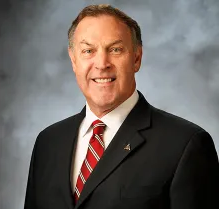In a few hours, I will become the President of the Windstorm Insurance Network. The 12th Annual Windstorm Conference has provided some impressions and reminded me of the silent majority of insurance adjusters who go about their jobs providing peace of mind and certainly overpaying parts of claims.
The modern all risk insurance policy provides many technical reasons and excuses to delay and not pay claims. Condition precedents to payment, if demanded in the entirety, can delay claims. Technical exclusions and time period requirements following delayed adjustments and payments can be used to frustrate the purpose of insurance. Fantastic adjusters avoid this scenario. As a result, I do not see their claims in lawsuits too often, if at all.
At a board dinner this week, a senior claims executive explained how his company was paying collapse losses. Being familiar with the policy language, I explained that the company didn’t have to pay partial collapse losses. He said he knew, but didn’t want to lose good customers just because the ISO changes made paying under the collapse provision impossible. Not all claims organizations share that philosophy.
While answering a question during my captivating presentation about new Gulf Coast case law, I commented when there are experienced adjusters with good interpersonal skills and the authority get claims paid, disputes seem to disappear. For other adjusters, disputes are chronic. I could make a fortune from their very upset policyholders.
For years, Hartford had a general adjuster in Florida who paid claims fairly. No complaints–happy policyholders. I litigated only one claim against him in fifteen years. He retired and was replaced with three younger adjusters. The result was a boom in Hartford insurance litigation. The cause was the adjusters’ different mind-set and skill-set.
I briefly talked with a large loss adjuster for Travelers yesterday and asked him how long he has been plying his trade. "36 years" was his response. I asked if he was behind a desk or out in the field. He adamantly said, "oh, no. Out in the field. I love my job." I could tell he meant that he loved taking care of people.
Adjustment of claims is a very demanding job. It takes heart, skill and knowledge to do it right. When done correctly by a fantastic adjuster, the policy’s goal of providing the peace of mind purchased is fulfilled. I tend to write about claims gone awry, but this silent majority of adjusters certainly deserve admiration for the work they accomplish.
I hope to meet and share success stories and techniques with other fantastic adjusters at next year’s Windstorm Conference in Orlando. We have already started taking ideas and suggestions for next year’s Conference.
Cheers!



